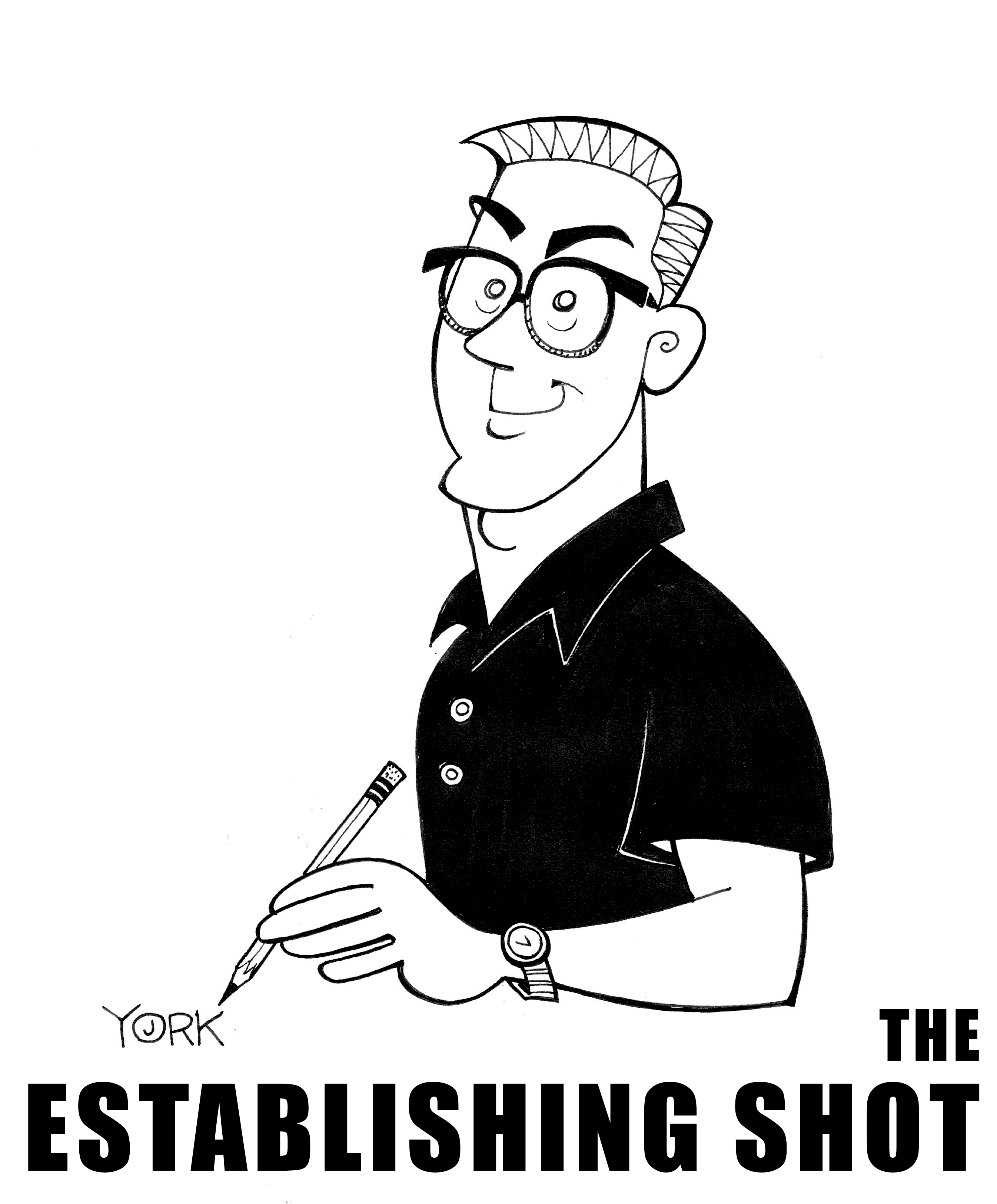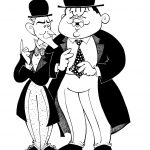Filmmaker Adam McKay won an Academy Award for Adapted Screenplay for his 2015 film THE BIG SHORT by mining the financial crisis of 2008 for darkly comic laughs. He’s back with the new dark comedy VICE, a withering critique of Dick Cheney and all the Machiavellian damage he did in his eight years as Vice-President under George W. Bush. It portrays Cheney as a man who was one of the most calculating and manipulative politicians to ever serve in Washington. His hubris took the tragedy of 9/11 and used it to launch a misguided war on Iraq even though that sovereign nation had nothing to do with the attack. He also oversaw the new program of illegal torture created to combat terror, as well as supervised all kinds of destructive policies that destroyed America’s reputation at home and abroad, and he did most of it without proper government oversight. Yet, even while showing all that, McKay doesn’t do enough to paint a portrait of the man as terrifying as it should be.
McKay has given interviews where he’s stated that he thinks Cheney was far worse for America than Donald Trump, but then why doesn’t the former Veep come off in the movie more horribly? Is it because the film is a dark comedy, one that wants us to laugh? It’s hard to find even ironic humor in Cheney’s legacy of thousands of lives lost in the phony war of Iraq, the outing of CIA agent Valerie Plame after her husband publicly questioned Cheney’s insistence upon WMD’s in Iraq, and the Bush administration’s over-spending on that war that helped trigger the economic collapse in 2008. These are all utterly tragic events that, unfortunately, McKay presents far too glibly.
McKay knows how to set up and joke and make it land, but so much of what’s he presenting here shouldn’t be given punchlines. Cheney should come off as continually chilling but instead seems to be more of a loutish, fat, grumpy uncle type. Cheney also was always a rock ridge conservative, one who felt strongly about his values throughout his decades in Washington, but McKay starts him off as a rudderless opportunist. Even if there was some waffling here and there, it lets him off too easy early on. It also doesn’t help that Christian Bale plays Cheney with far too much of a charming gleam in his eye. While physically essaying the portly man and imitating his voice perfectly, Bale doesn’t make the figure nearly threatening enough.
Similar problems mar Steve Carrell’s take on Secretary of Defense Donald Rumsfeld. McKay writes him, and Carrell follows suit in playing the man, like a cackling jokester without a core political agenda either. Rumsfeld was always a hardcore hawk, a ruthless and strident man who many characterized as one of the worst SOB’s ever to walk the halls of Congress. Where is that character? Remember, this was a man who justified the hours forcing detainees to stand as torture because he bragged about standing at his desk without pain. Carrell is also far too likable an actor, and he almost makes Rumsfeld cuddly.
Amy Adams’ Lynne Cheney starts off strong, pushing the ne’er-do-well Cheney around when they were courting and suggesting a Lady Macbeth steeliness, but her character is given short shrift as the film goes on, disappearing for virtually the entire last hour. And while Sam Rockwell looks and sounds a lot like W, his portrayal is too cartoonish to be useful in such a scathing critique as this. His W is too much Will Ferrell and not enough of the calculating religious wingnut willing to cut his vacation short to help Congress keep Terry Schiavo on life support in Florida, a state matter that the POTUS had no business getting involved in. Where’s that cunning and passionate zealot in this movie?
To put it simply, as well made as a lot of this movie is, with strong period production values, deft editing, and punchy sound design that keeps it all crackling, Cheney devastated the nation far too significantly to justify such a flippant approach to the material. If Cheney was the “Dark Lord” that so many described him as then the film should’ve made his horrifying malevolence far more apparent, as well as the fallout from his egregious actions. When he blithely instructs Scooter Libby (Justin Kirk) to out Plame’s husband, the film never shows how it devastated her. With that vengeful act, Cheney ended her career, put her life at risk, and exposed the hundreds of other CIA spies she worked undercover with for decades and put them in harm’s way too. Why didn’t McKay present that?
So many of Cheney’s horrible actions had awful real-world consequences, but the film would rather spend moments laughing at silly moments like when the Vice-President carelessly shot his fellow hunter in the face. A shrewder and more judicious take would’ve excised that scene and included more about Plame. Someday a filmmaker will tell the tale about Cheney and all his victims, and it will make Darth Vader seem like a teenager with a chip on his shoulder. Such a film should make audiences’ blood run cold. Unfortunately, this movie is having far too much fun making fun of people and events that just weren’t funny.






